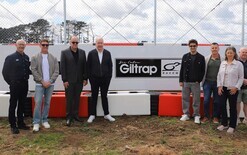Clean car discount shake-up

The government has announced changes to the clean car discount (CCD) that will result in more vehicles attracting fees and higher rebates for used zero-emissions vehicles from the start of July.
Michael Wood, Minister of Transport, says adjustments to the feebate scheme include narrowing its focus to more fuel-efficient vehicles earlier than planned.
Rebates will only apply for vehicles emitting less than 100g of carbon dioxide (CO2) per kilometre instead of the current 146g that has been in place since the policy was first introduced.
The rebate for zero-emissions used EV imports will increase from $3,450 to $3,507 from July. This is aimed at helping low and middle-income New Zealanders “get into lower-emitting vehicles they otherwise couldn’t afford”.
Meanwhile, the maximum rebate for new zero-emissions vehicles is being reduced from $8,625 to $7,015.
At the same time, the discount payment for vehicles emitting between 1gCO2/km and 100gCO2/km, will fall by about $1,500 to $1,750 for new vehicles and by $200 to $500 for used imports.
“The rebate will be $1,725 for a vehicle at 100g, plus $57.50 for each gram below 100g for new vehicles, up to a cap of $4025,” the Ministry of Transport (MoT) notes.
“Used imports will receive one half of the dollar amount of new vehicles.”
Wood, pictured, says to fund the upcoming changes that are designed to make it easier for New Zealanders to purchase cleaner imports, the charges on high-emissions vehicles are also being adjusted.
The threshold for when new and used imported vehicles attract penalty fees will drop from 192gCO2/kilometre to 150g. Fees will be set at $575, plus $57.50 for each gram above 150g for new imports and half that amount for used vehicles.
A new formula will be applied for calculating the fees for light vehicles emitting 192gCO2/km or more, which the MoT notes will increase charges.
As a result, the maximum fee for vehicles with very high emissions will rise from $5,175 to $6,900 for new vehicles and from $2,875 to $3,450 for used imports.
A special rebate for low-emission disability vehicles will also be introduced to cover new and used imports. This will be $11,500 if it is an EV, and $5,750 if plug-in hybrid or hybrid.
In announcing the changes on May 2, the minister says the moves are being made to ensure the “highly successful” CCD will keep driving down emissions.
“With over 100,000 rebates granted since the scheme came into effect in 2021, we currently have one of the fastest uptakes of EVs in the world,” he adds.
“The scheme is successfully exceeding industry and government projections, with 20 per cent of all new passenger car sales being electric in 2022. A substantial increase from eight per cent in 2021.
“The scheme is facilitating an increase in the number of EVs entering the fleet we did not expect until 2027. As planned, we are further targeting the scheme to maintain its success and ensure it will be self-funding until its next review.”
Part of the new measures will see the government increase the CCD’s repayable Crown grant by $100 million in Budget 2023.
Wood adds the CCD is forecast to save New Zealand from importing 1.4 billion litres of petrol, which at current prices will save the economy an average of $325 million a year less on fuel, out to 2035.
It is also forecast that the scheme will reduce emissions by 3.4 million tonnes by 2035 – “an additional 50 per cent out to 2035 over and above what was forecast when it started”.
“Our transition away from fossil fuels to New Zealand-generated renewable energy is crucial to tackling the cost-of-living crisis long-term,” Wood continues. “Switching to an EV is like buying petrol for 40c/litre, which can make a big difference to household budgets.
“The clean car discount is doing what we set out to achieve, which is reduce transport emissions and provide transport options to New Zealanders that will lower household costs in the long term.”


For more details about the CCD changes, click here.





